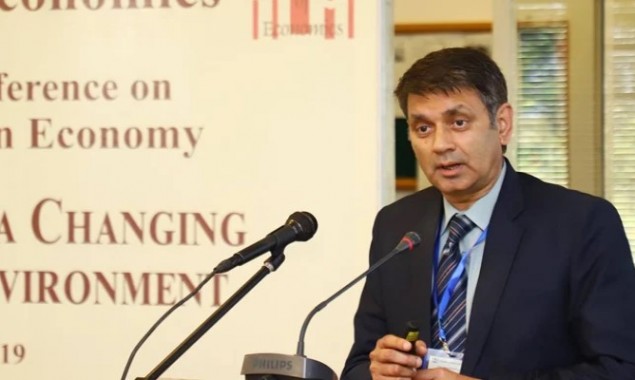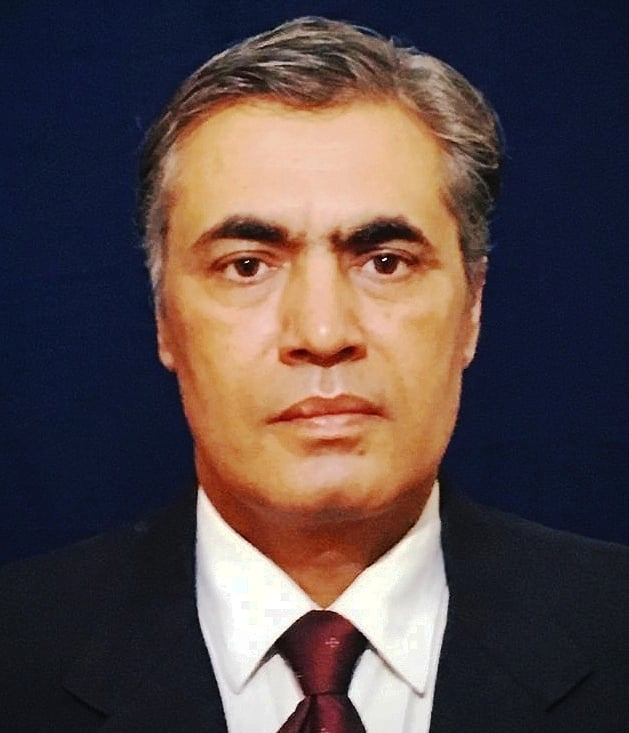
In an abrupt move on August 24, 2021, the federal government relieved the Federal Board of Revenue (FBR) chairman Asim Ahmad from his responsibilities and appointed Dr Muhammad Ashfaq Ahmed as the new chief of the apex tax authority.
Dr Muhammad Ashfaq Ahmed, a BS-21 officer of the Inland Revenue Service (IRS) is the 31st chairman of the national tax agency since its inception and the eighth chairman in the last three years of the present government. Surprisingly, not a single chairman could complete one year on this portfolio.
Dr Muhammad Ashfaq Ahmed is known to be the entrusted person of the prime minister himself because of his dedication towards work. He is aggressive in decision making. He was previously serving as the Member Inland (Operation) for a long time. As the Member Operation he took several on the spot decisions for revenue generation and facilitation of the taxpayers.
The reasons behind changing the guards are apparently cyber-attack on the centralised data of the revenue board and slow pace of tax reforms. Dr Ashfaq has been given this responsibility to probe the breach of cyber-security and enhance the pace of tax reforms.
Challenges for the new chairman
The new FBR chairman is facing several challenges, including achieving tax collection target of Rs5.829 trillion for the fiscal year 2021/22; integration of federal and provincial taxes; broadening the tax base by utilising 15 million transactions-based information; installation of Point of Sales (POS)/implementing track and trace system; and an action against the FBR officers/officials involved in bogus refund scam.
Tax collection target
The federal government has assigned a revenue collection target of Rs5.829 trillion for the current fiscal year, which is 23 per cent higher, compared with Rs4.732 trillion collected in the last fiscal year. Dr Ashfaq as the member of IR Operation had made a strategy for achieving the last year’s number, despite adverse economic conditions due to the coronavirus pandemic. The Ministry of Finance has expressed the hope to achieve the current fiscal year’s revenue collection target after robust increase in collection for the month of July 2021.
“In FY2021, the tax revenue increased 18.4 per cent, whereas in July FY2022, the tax collection climbed 42.5 per cent, indicating a good start to the new fiscal year. For FY2022, the tax collection is expected to reach Rs5.829 trillion. To achieve the target, the government is pursuing a comprehensive tax policy that focuses on expanding the tax base by identifying new taxpayers, gradually eliminating exemptions and concessionary provisions, along with lowering tax rates,” the Finance Ministry said.
Integration of federal and provincial taxes: Integration of the federal and provincial taxes is a difficult task for the FBR, especially convincing the provinces to become part of a one tax system. The World Bank in May 2019 provided assistance to the FBR for the integrated system. It included GST/GSTS standardised tax return endorsed by the revenue board and the provincial tax authorities responsible for collecting GSTS and standardised form available on all these tax authorities’ websites; single portal for filing and paying GST/GSTS for the FBR and the provinces is functional (year 3); portal automatically calculates input adjustments to divide the share of tax receipts to each tax authority based on agreed methodology; and portal automatically calculates and processes GST refunds to taxpayers.
Tax on agriculture income is very low in Pakistan and the lending agencies are continuously asking the local authorities to increase the revenue under this head.
Under the Constitution of Pakistan, the provinces have the mandate to collect the income tax on agriculture income. To improve the revenue collection under this head, Dr Ashfaq issued letters to the provincial authorities, offering them to strengthen the enforcement of tax laws.
The FBR has extended cooperation to the provincial governments by offering the issuance of system generated notices to the taxpayers who declare agricultural income in the federal income tax returns, to duly discharge their tax liabilities with the provinces.
Broadening the Tax Base
Pakistan is among the countries having a low tax-to-GDP ratio. The lower tax-to-GDP ratio can be attributed to the narrow size of taxpayers in the country. Of the 220 million population in Pakistan, only above three million comply with the mandatory requirement of filing return against the taxable income. Although the FBR had made serious efforts to increase the number in the past and, in this regard, it has gathered around 15 million information-based data of persons not complying with the national duty. It will be a big challenge for the new chairman to bring those persons having taxable income on the tax net.
Point of Sale/Track and Trace System
These are two flagship initiatives of the FBR to prevent mass sales tax evasion. These are also part of the tax reform programme. Recently, the revenue board and its field formation took action against big retailers who have not complied with the requirement of installing point of sale. For the last couple of years the FBR has been pursuing big retailers to share online their sales and purchase data but most of those failed to comply with. Similarly, the track and trace system was to be initiated with the tobacco sector and planned expansion to other major sectors, including sugar and cement. The issue was stayed by a higher court. However, the FBR is pursuing the matter to implement in true spirit.
Taking action against officers/officials involved in bogus refund scam
Recently, President of Pakistan Dr Arif Alvi rejected an appeal of the tax authorities against the order of the Federal Tax Ombudsman. The president directed the FBR to take action against officials involved in issuing bogus sales tax refunds worth Rs1.2 billion. The FTO in a suo motu notice identified fraud in issuing refunds during 2010/11. This is not the end of the story. The phenomenon of issuing bogus sales tax refunds continued. Recently, the Regional Tax Office (RTO) Karachi lodged 10 FIRs against the issuance of bogus refunds where non-existed companies obtained refunds. It will be a challenge for the new FBR chairman to take strict action against people involved in the bogus refund scam when the fully automated system for the clearance of refund is in place.
Further, the issuance of refunds and corruption are on the rise, as a large number of retired FBR officials and privately hired persons are doing official work and accessing sensitive information of the taxpayers. The Karachi Tax Bar Association (KTBA) linked the presence of retired officials and privately hired persons to the latest hacking attempt. The tax bar urged the FBR chairman for urgent action against such people.
Catch all the Business News, Pakistan News, Breaking News Event and Latest News Updates on The BOL News
Download The BOL News App to get the Daily News Update & Follow us on Google News.




